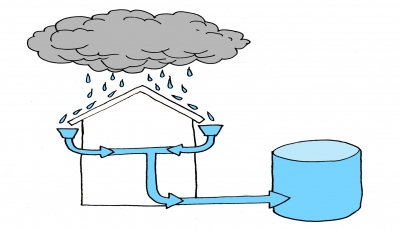Comprehensive Solutions for Industrial Waste Water Treatment by Reclaim Waste Melbourne
Comprehensive Solutions for Industrial Waste Water Treatment by Reclaim Waste Melbourne
Blog Article
Fostering Source Effectiveness and Environmental Management Through Fluid Waste Removal Programs
In the world of environmental stewardship, the management of liquid waste stands as a vital time where resource efficiency and environmental security assemble. With a lens of aggressive engagement and tactical foresight, the landscape of liquid waste administration introduces a tapestry of obstacles and opportunities that bid us to discover the path towards a greener and more sustainable future.
Importance of Liquid Waste Removal
The value of fluid waste elimination depends on its crucial role in preserving ecological wellness and guarding public health. Fluid waste, otherwise appropriately handled, can present significant dangers to environments, water resources, and human health and wellness. Through efficient removal processes, unsafe materials such as virus, contaminants, and chemicals are avoided from contaminating the environment and creating destructive results.
Appropriate liquid waste elimination likewise helps in stopping the spread of conditions and minimizing the potential for groundwater contamination. By securely taking care of fluid waste, the risk of waterborne ailments and pollution-related health and wellness issues is dramatically lessened - Reclaim Waste. In addition, effective elimination methods add to preserving the overall tidiness and visual appeals of areas, thus enhancing the lifestyle for locals
Furthermore, liquid waste elimination plays a vital function in supporting sustainable growth and guaranteeing conformity with ecological policies. By sticking to correct waste administration protocols, services and markets can lower their environmental impact and show company responsibility. Ultimately, purchasing durable fluid waste elimination programs is vital for advertising ecological stewardship and cultivating a much healthier, safer future for all.

Benefits of Reliable Disposal
Effective disposal of fluid waste not only safeguards ecological health and wellness and public wellness however additionally generates countless benefits that expand beyond instant control steps. One key advantage of effective disposal is the decrease of air pollution in water bodies and soil. By appropriately managing liquid waste, the danger of contamination lowers, securing and maintaining ecosystems biodiversity. Furthermore, reliable disposal techniques contribute to resource preservation. Via processes like recycling and energy healing, beneficial sources can be drawn out from fluid waste, promoting sustainability and minimizing the pressure on basic materials. Taking on reliable disposal approaches can lead to set you back financial savings for communities and companies. By maximizing waste monitoring procedures, companies can simplify procedures, lessen disposal expenditures, and possibly create revenue via the sale of recycled products. On the whole, the advantages of effective liquid waste disposal are diverse, incorporating environmental management, source performance, and financial benefits.
Technologies for Waste Treatment
Using sophisticated technologies for waste treatment plays an essential duty in guaranteeing the effective monitoring and secure disposal of liquid waste. One of the vital modern technologies utilized in liquid waste therapy is organic treatment. This method makes use of bacteria to break down organic matter in the waste, transforming it into safe results. One more common modern technology is chemical treatment, where chemicals are contributed to the waste to reduce the effects of hazardous parts or speed up impurities for elimination. Physical treatment approaches, such as purification and sedimentation, are additionally widely made use of to separate solids from fluid waste.
Additionally, thermal treatment techniques such as incineration can be utilized for the total destruction of harmful parts in fluid waste. Overall, the integration of diverse treatment innovations ensures eco pleasant and thorough monitoring of fluid waste.
Role of Regulations and Conformity
In the world of fluid waste monitoring, adherence to governing structures and conformity requirements is paramount for protecting environmental health and wellness and sustainability. Laws play a vital function in this content regulating the appropriate handling, therapy, and disposal of fluid waste to avoid damage to environments and human website link health and wellness. By establishing clear guidelines and standards, regulative bodies make sure that services and individuals involved in fluid waste monitoring run in an ecologically responsible way.
Compliance with these regulations is not just a lawful demand but additionally an honest responsibility to safeguard the environment for future and present generations. It involves implementing ideal methods in waste collection, treatment, transport, and disposal to lessen environmental influence and promote source effectiveness. Non-compliance can cause fines, lawsuit, and reputational damages for organizations, highlighting the importance of upholding regulatory standards.

Future Fads in Waste Administration

Another crucial fad in waste monitoring is the fostering of sophisticated data analytics and expert system to optimize waste collection courses, enhance arranging procedures, and improve overall operational performance. These modern technologies make it possible for waste administration business to make data-driven choices, resulting in cost financial savings and ecological benefits.
Furthermore, there is an expanding emphasis on the development of decentralized waste management systems, such as onsite treatment facilities and mobile waste processing devices. These systems use flexibility and scalability, allowing for extra reliable waste handling in varied atmospheres.
Conclusion
In conclusion, cultivating resource efficiency and ecological protection through fluid waste removal programs is crucial for lasting development. Reliable disposal methods, progressed innovations for waste treatment, and stringent laws play key duties in reducing ecological effect. Looking in advance, continuous technology and enhancement in waste administration practices will certainly be necessary for dealing with the expanding challenges of liquid waste disposal.
In the world of ecological stewardship, the management of liquid waste stands as a crucial point where resource effectiveness and ecological protection assemble (Liquid waste removal).Utilizing sophisticated modern technologies for waste treatment plays a vital duty in guaranteeing the efficient monitoring and safe disposal of liquid waste.In the world of fluid waste monitoring, adherence to regulatory frameworks and compliance requirements is paramount for protecting ecological wellness and sustainability.In verdict, fostering resource efficiency and environmental security via fluid waste elimination programs is essential for sustainable advancement. Looking ahead, constant advancement and renovation in waste monitoring techniques will be vital for attending to the expanding difficulties of fluid waste disposal
Report this page